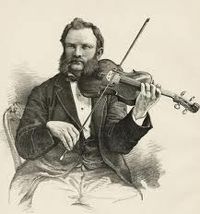Annotation:Miller o' Hirn (The): Difference between revisions
No edit summary |
No edit summary |
||
| (3 intermediate revisions by the same user not shown) | |||
| Line 2: | Line 2: | ||
{{TuneAnnotation | {{TuneAnnotation | ||
|f_tune_annotation_title= https://tunearch.org/wiki/Annotation:Miller_o'_Hirn_(The) > | |f_tune_annotation_title= https://tunearch.org/wiki/Annotation:Miller_o'_Hirn_(The) > | ||
|f_annotation='''MILLER O' HIRN, THE.''' Scottish, Schottische or Strathspey. D Major. Standard tuning (fiddle). AAB. The first tune composed by [[wikipedia:James_Scott_Skinner]], for the friend of his father | |f_annotation='''MILLER O' HIRN, THE.''' Scottish, Schottische or Strathspey. D Major. Standard tuning (fiddle). AAB. "The Miller o' Hirn" was the first tune composed by Aberdeenshire fiddler-composer and Scottish dancing master [[wikipedia:James_Scott_Skinner]] (1843-1927), for the friend of his father William, as well as Skinner himself. The miller at Hirn, near Banchory, was James Johnston, whom Skinner visited as a child (Hunter says Skinner's grandfather and Johnston married sisters). Skinner apparently was confident that his composition, which in fact is one of his best, would supplant the famous strathspey "[[Miller of Drone (1) (The)]]" in the literature, for he prefaced the tune in his '''Harp and Claymore''' (1904) collection with: | ||
[[File:skinner.jpg|200px|thumb|right|J. Scott Skinner]] | [[File:skinner.jpg|200px|thumb|right|J. Scott Skinner]] | ||
<blockquote> | <blockquote> | ||
| Line 8: | Line 8: | ||
''The 'Miller o' the Hirn', O.''<br> | ''The 'Miller o' the Hirn', O.''<br> | ||
</blockquote> | </blockquote> | ||
Skinner named his first large collection '''The Miller of Hirn Collection''' [http://www.abdn.ac.uk/scottskinner/display.php?ID=JSS0718], printed in 1881, "Respectfully Dedicated to all Lovers of Scotch Music." | Skinner named his first large collection '''The Miller of Hirn Collection''' [http://www.abdn.ac.uk/scottskinner/display.php?ID=JSS0718], printed in 1881, "Respectfully Dedicated to all Lovers of Scotch Music." Skinner included compositions in the collection dedicated to Johnston, his wife ("[[Miller o' Hirn's Wife (The)]]") and son (see "[[Miller o' Hirn's Son (The)]]"). He included this bit of verse by La Teste<ref>'La Teste' was the professional name of William Hay Leith Tester (1829-1892). Skinner solicited La Teste and other Scottish poets to set lyrics to some of his music. </ref> in the collection, to accompany his tune: | ||
<blockquote> | <blockquote> | ||
'' 'Lad, cam' ye doun by Feugh's green howe,''<br> | '' 'Lad, cam' ye doun by Feugh's green howe,''<br> | ||
Latest revision as of 01:26, 4 December 2021
X:1 T:Miller o' Hirn, The M:C L:1/8 R:Strathspey S:MacDonald - Skye Collection (1887) Z:AK/Fiddler's Companion K:D D>E F<B A<F (D2|B,>)E G/F/E/D/ C<A, ~A,>C|D>E F<B A<F D2|B,>D (C<A) F<D D2:| A>G (F<d) B<(G ~G2)|B>A ^G<e c<A A>B|A>G (F<d) B>A (G<B)|c>B A<a f<d ~d>B| A>G (F<d) B<(G ~G2)|B>A (^G<e) c<A A>c|(3dAB (3cde (3fde (3fga|(3bag (3fed (3cBA (3GFE||
MILLER O' HIRN, THE. Scottish, Schottische or Strathspey. D Major. Standard tuning (fiddle). AAB. "The Miller o' Hirn" was the first tune composed by Aberdeenshire fiddler-composer and Scottish dancing master wikipedia:James_Scott_Skinner (1843-1927), for the friend of his father William, as well as Skinner himself. The miller at Hirn, near Banchory, was James Johnston, whom Skinner visited as a child (Hunter says Skinner's grandfather and Johnston married sisters). Skinner apparently was confident that his composition, which in fact is one of his best, would supplant the famous strathspey "Miller of Drone (1) (The)" in the literature, for he prefaced the tune in his Harp and Claymore (1904) collection with:

We'll 'Drone' nae mair, sin' we ha'e got
The 'Miller o' the Hirn', O.
Skinner named his first large collection The Miller of Hirn Collection [1], printed in 1881, "Respectfully Dedicated to all Lovers of Scotch Music." Skinner included compositions in the collection dedicated to Johnston, his wife ("Miller o' Hirn's Wife (The)") and son (see "Miller o' Hirn's Son (The)"). He included this bit of verse by La Teste[1] in the collection, to accompany his tune:
'Lad, cam' ye doun by Feugh's green howe,
The Feugh that rins through Crathes, O?
Heard ye a fiddler dirl a bow,
Wi' something like a pathos, O?
Weel, gin he meet wi' your applause,
I brawly can discern, O,
The dusty-noted fiddler was
"The Miller o' the Hirn", O.
Hech, hey, the Hirn, O!
The water-clatter Hirn, O;
There's few can play a reel wi' him,
The Miller o' the Hirn, O.
Skinner recorded "Arthur's Seat" in 1910 in London with pianist Ethel Stuart, one of a series of Skinner recordings from that session heard by a young Donegal fiddler John Doherty, and added to his own repertory [2].
- ↑ 'La Teste' was the professional name of William Hay Leith Tester (1829-1892). Skinner solicited La Teste and other Scottish poets to set lyrics to some of his music.
- ↑ Thomas Caldwell, "Did you hear about the poor old travelling fiddler?’ - The Life and Music of John Doherty", Doctoral Thesis, 2013, pp. 90-91.

